All Stories
-
 Neuroscience
NeuroscienceShaking up the body may improve attention
Just two minutes of whole body vibrations improved young adults’ attention to detail.
-
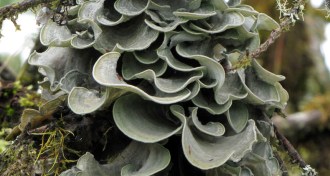 Life
LifeOne lichen is actually 126 species and counting
One supposedly well-known tropical lichen could really be several hundred kinds.
By Susan Milius -
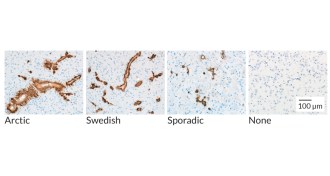 Neuroscience
NeuroscienceAlzheimer’s disease may come in distinct forms
Mouse experiments, if confirmed in people, imply that Alzheimer’s disease treatment should be personalized.
-
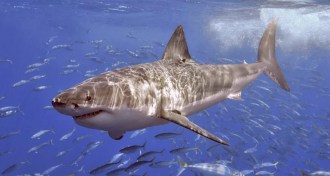 Animals
AnimalsWhy great white shark sightings are good news
Conservation measures implemented in the 1990s halted a decline in great white sharks in the Atlantic.
-
 Astronomy
AstronomyMagnetic bubbles could shield astronauts from radiation
With help from plasma and a magnet, solar storms' dangers would lessen on long space trips.
By Meghan Rosen -
 Physics
Physics‘Faraday, Maxwell, and the Electromagnetic Field’ is a biography of brilliance
Authors Nancy Forbes and Basil Mahon show how two men’s work came together to change physics.
-
 Psychology
PsychologyWesterners sleep more than people from Eastern nations
Sleep schedules vary from country to country, with social demands like work and study providing the primary incentives to stay up.
-
 Life
LifeAnimal sex lives exposed in ‘Nature’s Nether Regions’
What the sex lives of bugs, birds, and beasts tell us about evolution, biodiversity, and ourselves.
By Susan Milius -
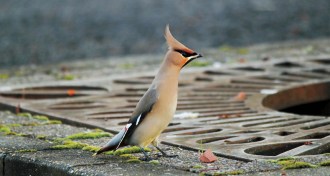 Animals
AnimalsTo ID birds, try facial recognition
Improve your backyard birding using facial recognition software.
-

-

-
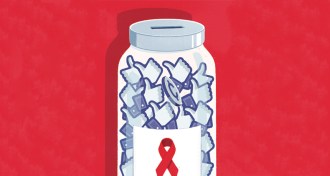 Psychology
PsychologyOnline causes may attract more clicks than commitments
Online awareness campaigns can make people feel they’ve contributed to a good cause, but social scientists say the tangible benefits of such efforts may be small.
By Bruce Bower